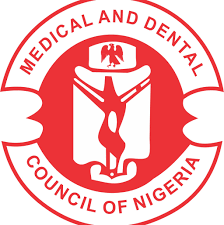Hospitals across the Federal Capital Territory (FCT) were thrown into disarray yesterday as resident doctors began a seven-day warning strike, leaving patients stranded and forcing many to seek care in private facilities.
The strike, called by the Association of Resident Doctors, Federal Capital Territory (ARD-FCT), crippled medical services in Maitama District Hospital, Kubwa General Hospital, and other facilities across the six area councils. Emergency units, radiography departments, and wards were deserted, with only nurses and consultants providing skeletal services.
For patients, the disruption has been devastating. Mary Adegbenro, who had gone to Kubwa General Hospital to begin antenatal care, said she had no choice but to switch to a private clinic. Her husband, Tunde, expressed frustration: “We were told to start antenatal today, but now we have to look for alternatives. This situation is heartbreaking.”
At Maitama District Hospital, elderly patient Mallam Yusuf Muhammed lamented being turned away despite a scheduled follow-up after surgery. “The government and doctors must think of people like us. The nurses are trying, but there are things only doctors can do,” he said.
Other patients, like Paul Jackson, were shocked to learn of the strike only after arriving at hospital gates. “I came for tests but ended up spending over N30,000 at a private hospital. The government must intervene quickly,” he told reporters.
Similar scenes were recorded at Abaji, Kwali, Kuje, and Gwagwalada General Hospitals, where wards and accident units were shut. Patients with serious illnesses expressed fears over the risks of delayed treatment.
Why the Doctors Are Striking
The resident doctors, who are crucial to Nigeria’s health system, accuse the FCT Administration of neglecting structural problems plaguing the sector. In a communiqué signed by ARD-FCT President, Dr. George Ebong, the union highlighted manpower shortages, obsolete equipment, unpaid allowances, poor working conditions, and delayed promotions.
Ebong warned that the strike could escalate if demands are not met: “After seven days, we will review progress. If nothing changes, we will embark on an indefinite strike. All services, from outpatient clinics to theatres, will be affected.”
The strike comes against the backdrop of an ongoing national standoff between the Nigerian Association of Resident Doctors (NARD) and the federal government over welfare. NARD has issued an ultimatum expiring September 10, threatening broader action if unresolved.
Government Response and Call for Dialogue
Minister of State for Health, Dr. Iziaq Salako, expressed optimism that negotiations could avert a prolonged strike. “We are making progress. Conversations with NARD are ongoing, and we hope for a positive resolution,” he told Channels Television.
Health experts have urged both sides to prioritize dialogue. The Chief Medical Director of Jos University Teaching Hospital, Dr. Pokop W. Bupwatda, said: “Constant engagement is key. Doctors and nurses who remain in Nigeria are already making sacrifices. Government must build mutual trust with unions to prevent repeated crises.”
A Pattern of Strikes
The latest action is part of a cycle of disputes between FCT doctors and the government:
- December 2024: Doctors issued a 21-day ultimatum over unpaid allowances.
- January 2025: A three-day strike was launched but suspended after the FCT minister approved arrears payments and new staff recruitment.
- May 2025: Another warning strike was staged over unpaid April salaries for 127 doctors.
Now, with services grounded once again, patients bear the brunt of a failing system. As one patient, Mrs. Ruth, put it: “We are the ones suffering. Government and doctors must resolve this quickly—lives are at stake.”




